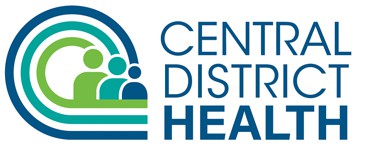Summary
The Centers for Disease Control and Prevention (CDC) recently published updated sexually transmitted disease (STD) treatment guidelines. This document replaces the 2010 treatment guidelines and may be accessed at http://www.cdc.gov/std/tg2015/.
Neisseria gonorrhoeae Treatment
Since 2014, gonorrhea rates have been increasing throughout the Pacific Northwest, including the communities served by CDHD. Between January and June 2015, 94 cases of gonorrhea have been reported. In comparison, just 17 cases were reported during the same timeframe during 2013. Risk-based testing and appropriate antibiotic treatment remain cornerstones in preventing the spread of gonorrhea infection.
Due to concerns over antibiotic resistance, dual antibiotic therapy continues to be recommended. For uncomplicated infections of the cervix, urethra, rectum, and pharynx the recommended regimen remains:
Ceftriaxone 250mg IM in a single dose PLUS Azithromycin 1g orally in a single dose.
If ceftriaxone is not available, Cefixime 400 mg orally in a single dose PLUS Azithromycin 1g orally in a single dose is considered an appropriate alternative for the treatment of uncomplicated gonococcal infections of the cervix, urethra, and rectum. Please note, there is no recommended alternative treatment regimen for pharyngeal gonococcal infections.
Syphilis Update
Syphilis is an ongoing concern. Between January and August 2015, 18 cases of early syphilis have been reported to CDHD. Men who have sex with men (MSM) continue to be the highest risk group, although methamphetamine use has been a risk factor among recent male and female cases.
Please consider syphilis if a patient presents with:
- Any ano/genital or oral lesion, especially indurated and minimally painful ulcers
- Any unexplained rash, especially with palmar or plantar involvement
- Unexplained lymphadenopathy
Testing for syphilis should include both screening (e.g., RPR or VDRL with titer) and confirmatory serologies (e.g., TPPA, FTA-Abs, or MHA-TP).
Additional Resources
For more information call the Communicable Disease Program at 208-327-8625.
For a compact reference to STD screening recommendations by disease and risk group go to http://www.cdc.gov/std/tg2015/screening-recommendations.htm.
Looking for STD treatment information on the go? There’s an app for that. The treatment guidelines app for your iPhone can be found at https://itunes.apple.com/us/app/std-tx-guide/id655206856?mt=8 . An Android app is in development.
#####
XXXXX AUGUST 2015

